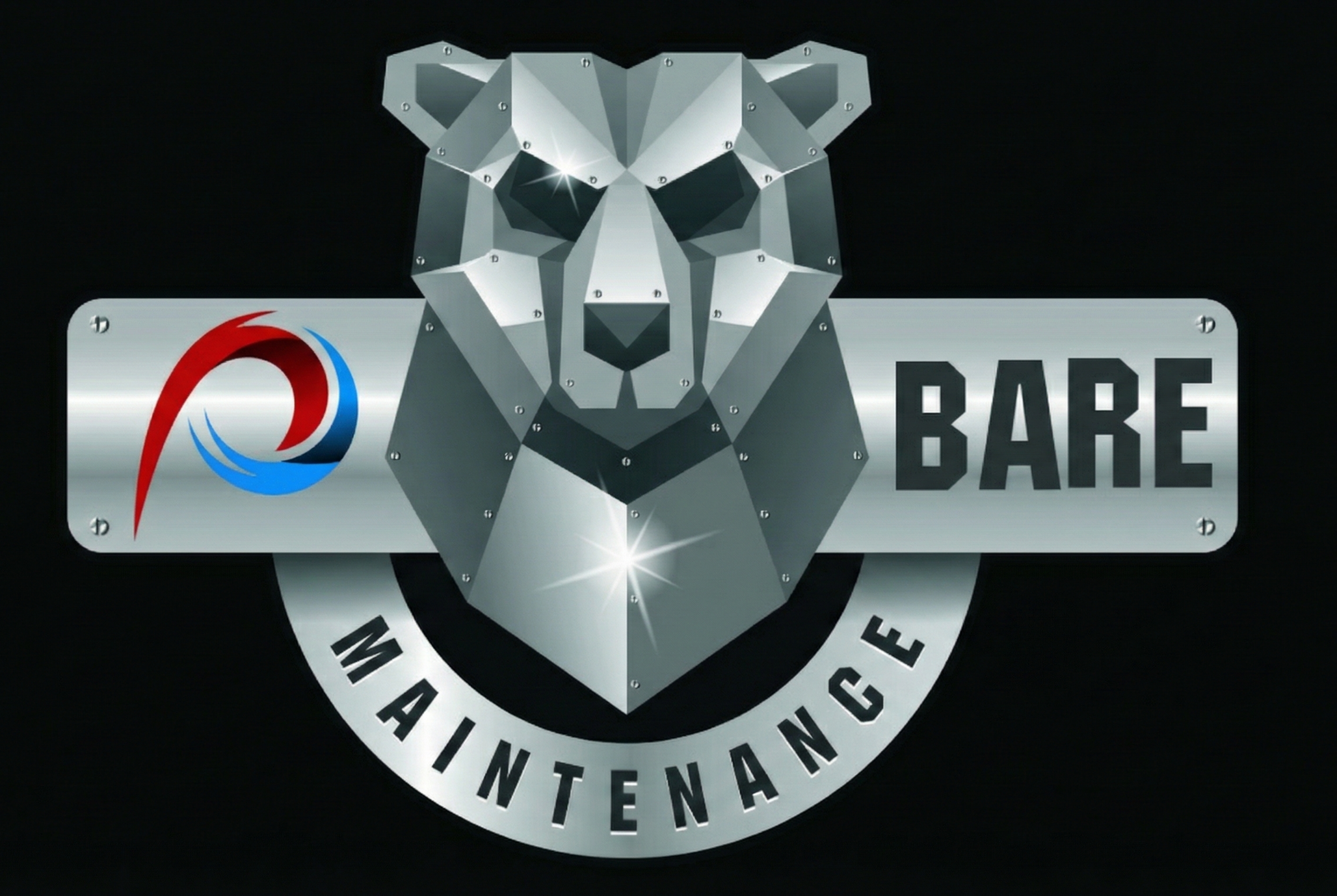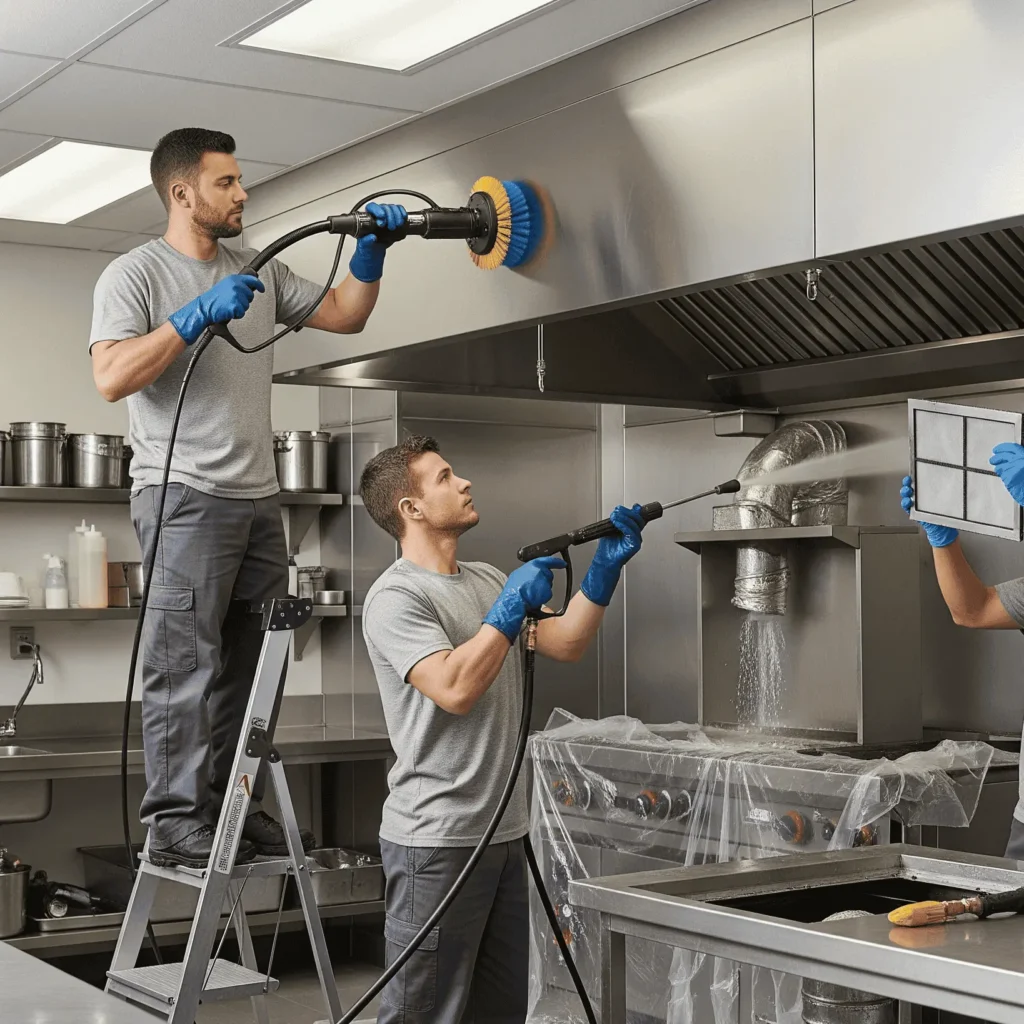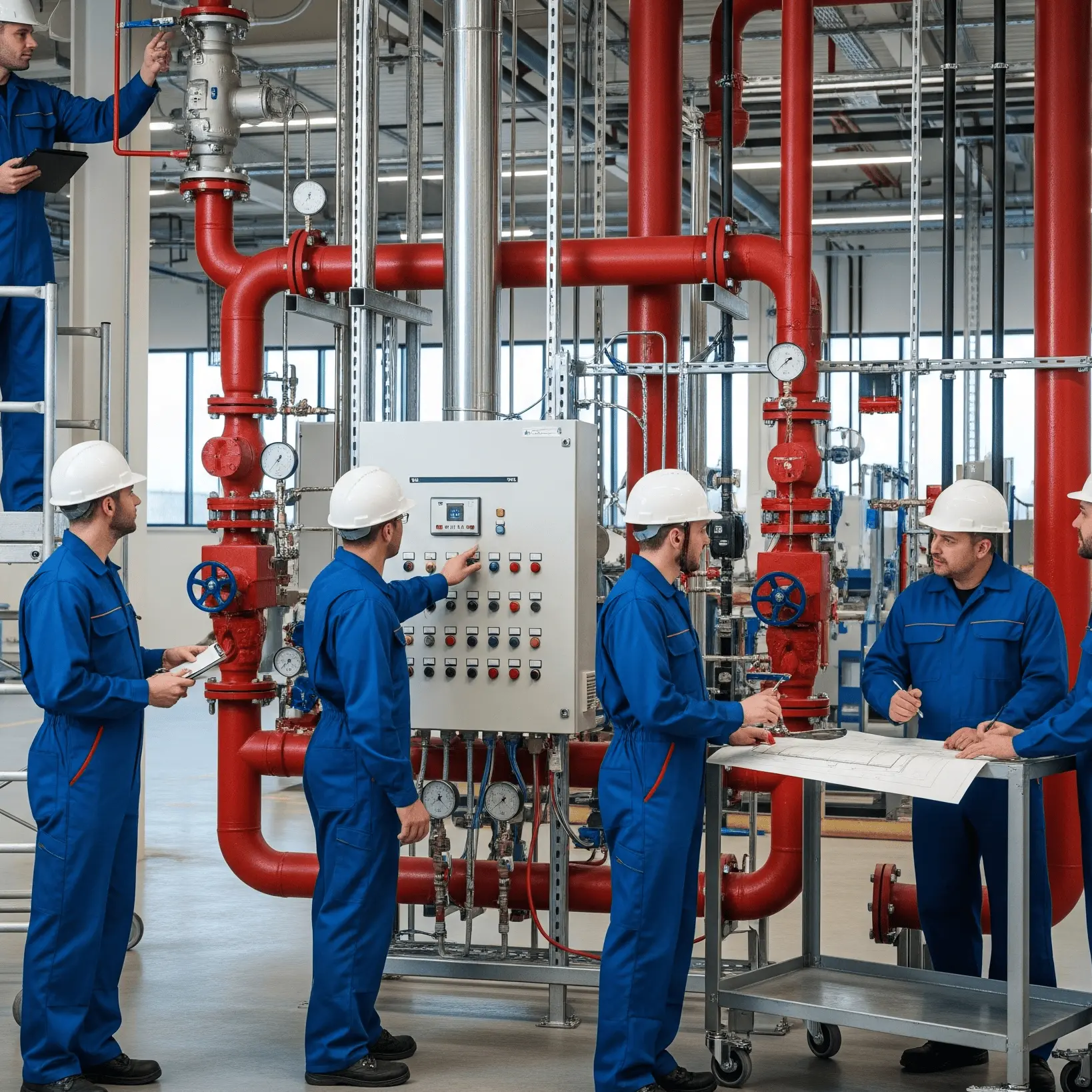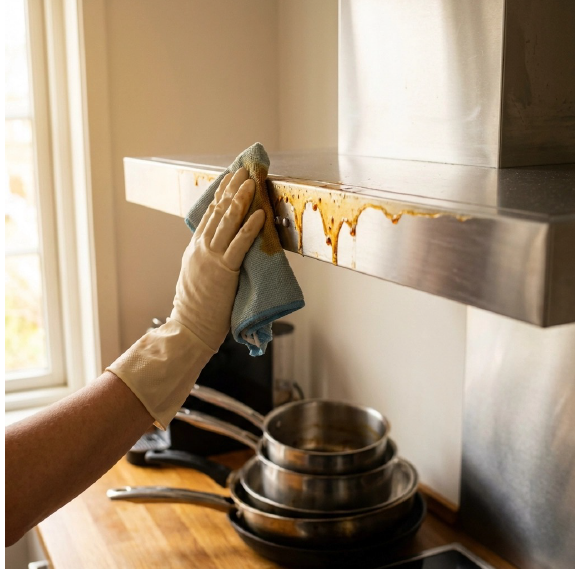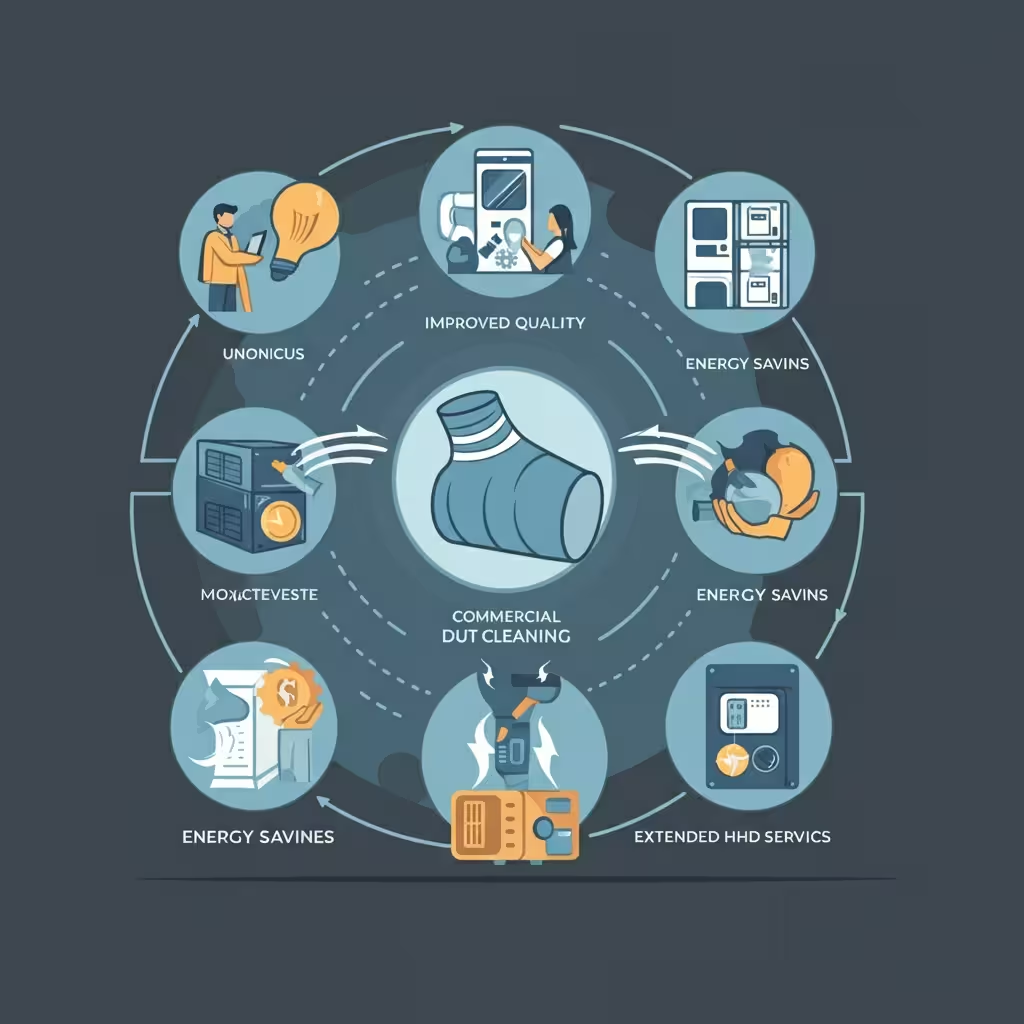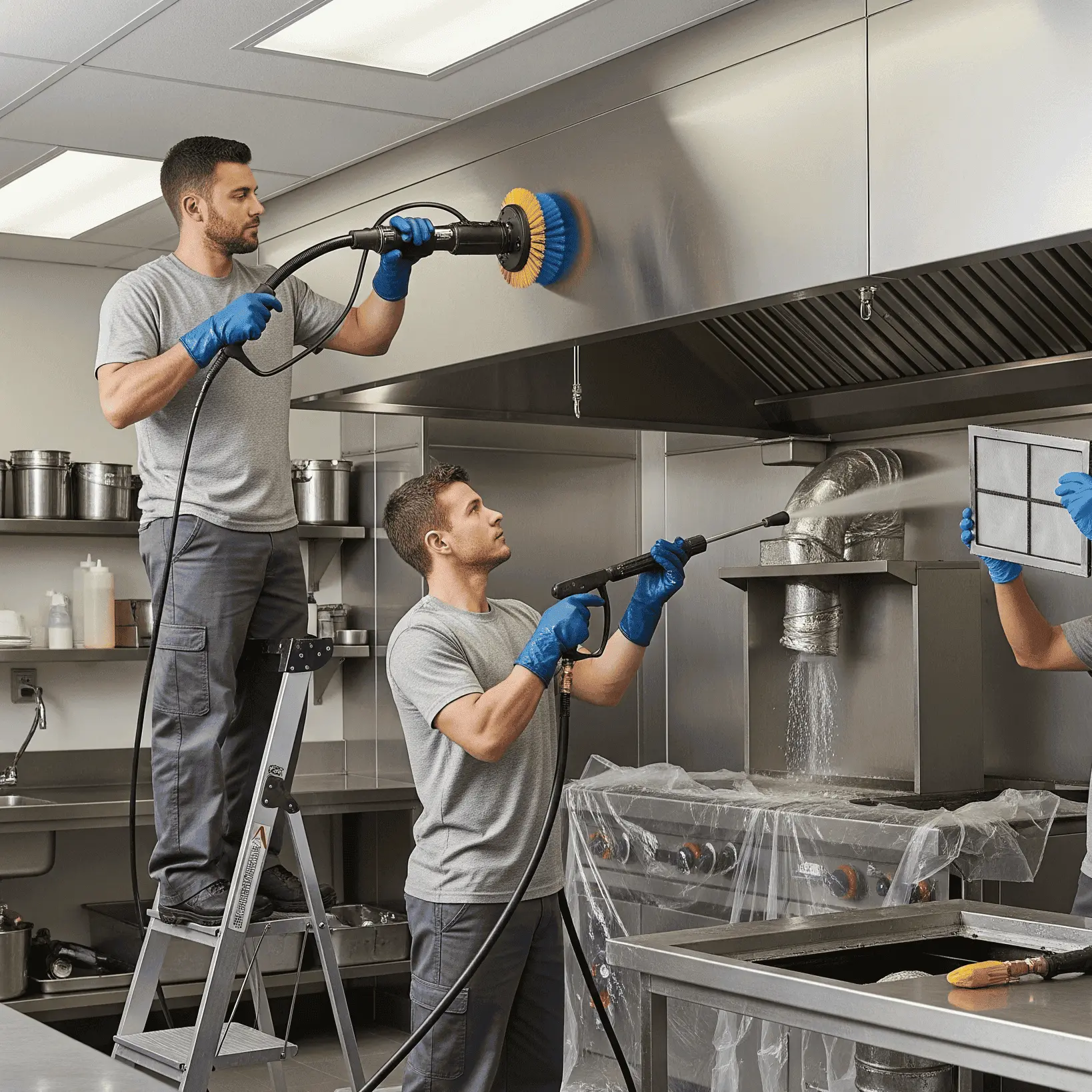As a busy restaurant owner or manager in Illinois, you know that keeping your kitchen exhaust system clean is a critical task. It’s a matter of fire safety, legal compliance, and even kitchen efficiency. But the question we hear most often is also the most important: “How often do I actually need to schedule a cleaning?”
The answer isn’t just a simple guess. It’s a specific requirement determined by national fire codes, the type of food you cook, and your daily volume. Scheduling too infrequently puts you at risk of a devastating fire and non-compliance fines, while scheduling too often can be an unnecessary expense.
To clear up the confusion, we’ve compiled the most frequently asked questions from Illinois restaurant owners about kitchen exhaust cleaning schedules into this straightforward guide.
The Foundation: Why Regular Cleaning is Non-Negotiable
Before we dive into the “how often,” let’s quickly recap the “why.” Your exhaust system pulls flammable grease vapor out of your kitchen every minute you’re cooking. This grease builds up inside the hood, ducts, and on the rooftop fan, creating a direct fuel line for a fire.
Regular, professional cleaning is essential for:
- Fire Prevention: It removes the primary fuel source for most commercial kitchen fires.
- Illinois Code Compliance: It keeps you in good standing with local fire marshals who enforce the NFPA 96 standard.
- Business Protection: It ensures your insurance policy remains valid and protects you from liability.
With that in mind, let’s answer your most pressing questions.
Your Kitchen Exhaust Cleaning FAQs Answered
1. What is the official cleaning schedule required in Illinois?
There’s no guessing game here. Illinois, like most states, adheres to the NFPA 96: Standard for Ventilation Control and Fire Protection of Commercial Cooking Operations. This standard sets the minimum frequency for inspection and cleaning based on the type and volume of cooking you do.
Here is the official schedule:
- Monthly: Required for systems serving solid fuel cooking. If you use a wood-fired oven, charcoal grill, or any other solid fuel, you need a monthly service due to the rapid buildup of flammable creosote.
- Quarterly (Every 3 Months): For high-volume cooking operations. This includes 24-hour diners, restaurants that do a lot of charbroiling or wok cooking, and establishments with consistently high output.
- Semi-Annually (Every 6 Months): The most common frequency for moderate-volume operations. Most typical restaurants, hotel kitchens, and hospital cafeterias fall into this category.
- Annually (Once a Year): Reserved for very low-volume operations like church kitchens, day camps, and seasonal businesses. This is not a typical schedule for a full-time commercial restaurant.
2. My restaurant isn’t that busy. Can I get by with just once a year?
This is one of the most common and dangerous misconceptions. The term “volume” in the NFPA 96 standard refers more to the type of cooking than the number of customers you serve. Some cooking methods produce far more grease than others.
For example, a small diner that fries bacon and burgers all day will generate significantly more flammable grease than a large banquet hall that primarily uses steamers and ovens. Charbroiling, frying, and wok cooking are high-grease producing activities. Unless your operation is extremely limited (like a church kitchen used only on Sundays), an annual cleaning schedule will almost certainly leave you non-compliant and at high risk. The vast majority of Illinois restaurants require semi-annual or quarterly service.
3. What factors might require me to clean my system more often than the standard?
The NFPA 96 schedule is the minimum baseline. Certain factors can accelerate grease buildup and may require you to adopt a more frequent cleaning schedule to remain safe. These include:
- Menu Changes: If you add a new charbroiler or more fried items to your menu, your grease output will increase, likely bumping you into a more frequent category (e.g., from semi-annually to quarterly).
- Increased Hours: Extending your hours or opening for an additional meal service (like adding breakfast) means more cooking time and faster accumulation.
- System Design: Kitchens with very long horizontal duct runs or multiple sharp turns can be prone to heavier buildup in certain areas, warranting more frequent cleanings.
- Aging Appliances: Older cooking equipment can operate less efficiently and release more grease-laden vapor into the air.
4. How do I know for sure what my schedule should be?
The best way to eliminate guesswork is with a professional assessment. A certified kitchen exhaust cleaning technician can perform a thorough inspection of your system, analyze your menu and cooking methods, and provide a definitive, code-compliant cleaning recommendation. They have the expertise to correctly classify your operation according to NFPA 96 standards.
A professional inspection takes the guesswork out of compliance. You can learn more about our assessment process and our comprehensive kitchen exhaust cleaning services that keep Illinois businesses safe and compliant.
5. What happens if I miss a scheduled cleaning?
Missing a required service is not something to take lightly. The consequences can be severe:
- Extreme Fire Risk: The flammable grease in your system continues to build, dramatically increasing the likelihood that a small kitchen flare-up will become a catastrophic fire.
- Guaranteed Compliance Violation: You are immediately out of compliance with Illinois fire codes. An unannounced visit from a fire inspector could lead to significant fines or even an order to cease operations until the system is cleaned.
- Insurance Complications: If a fire does occur, your insurance company will investigate the cause. Proof that you neglected a required cleaning can be grounds for them to deny your claim entirely.
Partnering with a Professional: The Key to a Consistent Schedule
As a restaurant owner, you have enough to worry about without having to constantly track your next exhaust cleaning date. This is where a partnership with a reliable, certified cleaning company becomes invaluable. A professional service provider will not only perform the cleaning to code but will also manage your schedule for you. They will track your service history, understand your required frequency, and send you timely reminders when your next cleaning is due, ensuring you never fall out of compliance.
Your kitchen’s safety and your business’s future are too important to leave to chance. Stop guessing and ensure your Illinois restaurant is protected. Contact our team today for a professional evaluation and set up a cleaning schedule that guarantees your safety and compliance.
